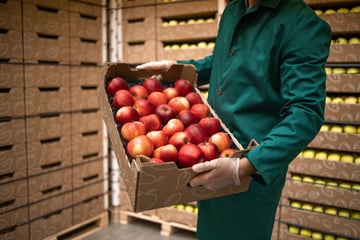We’ve discussed FSMA a few times on this blog (like here and here), but perhaps equally important for companies that rely on foreign imports is the Foreign Supplier Verification Program. For larger companies, the FDA is only giving importers 18 months following the final ruling to meet FSVP provisions—which means there’s no time like the present to figure out how these changes affect you and your company.
To help you prepare, we’re breaking the regulation changes down into five must-know facts about FSVP.
1. Importers are “Guilty” Until Proven “Innocent”
Before FSVP was incorporated into FSMA, the FDA only denied imported food admission to the United States if there was evidence or reason to believe that it violated the laws. In simpler terms, imported food was all assumed “innocent” unless proven otherwise.
Now, under FSVP, importers will need to verify that both the food and the food suppliers follow regulations with an adequate FSVP. So, essentially, the “innocence” (or, really, compliance) of all imported food now must be proven in advance.
2. Imported Food Must Meet Three Main REQUIREMENTS
In order to import food from foreign suppliers, importers need to make sure the following requirements are met:
- All food making, processing, packing and storing needs to meet the same level of “public health protection” as the requirements set forth by HARPC and the Standards of Produce Safety Requirements.
- All food must comply with the Major Food Allergen Labeling requirements.
- Foods cannot be adulterated.
3. The FDA Can Stop an Import If the Importer Appears to Violate FSVP
The new regulations also err on the side of caution when it comes to stopping imports. Rather than needing to prove an import supplier isn’t compliant with FSVP before stopping imports, the FDA only needs to have reason to believe a violation is happening in order to halt all importation from that supplier.
4. Importers Are Responsible for Their Own Safety Plans
This involves conducting a hazard analysis (more specifically, a Hazard Analysis and Risk-Based Preventive Controls, or HARPC, assessment) on each item of food being imported and verifying each supplier being used. Importers are also responsible for keeping detailed records of all data and analyses.
5. Importers Must Reassess their FSVP Every Three Years
Becoming FSVP-compliant isn’t just a one-time thing. Instead, importers will need to reassess their safety plans and supplier verification every three years, at minimum. However, if new risks with specific foods or suppliers pop up, reassessment may need to happen more often.
While these five facts are certainly not everything you need to know about FSVP, they do provide a good starting point on your journey to compliance. Read up, keep doing your research and make sure you have adequate insight into your supply chain.
Interested in managing your foreign and domestic suppliers with end-to-end traceability, but not sure how to pitch the idea to your leadership team? Our free guide, Selling the C-Suite on Supply Chain Traceability Software, tells you everything you need to know.

Tag(s):
Supplier Compliance
Other posts you might be interested in
View All Posts
Food Industry
7 min read
| March 9, 2023
How FSMA 204 Impacts International Suppliers
Read More
Supplier Compliance
9 min read
| March 14, 2017
FSVP 101: Everything You Need to Know About the FDA’s Latest Guidelines
Read More
Food Industry
7 min read
| December 6, 2022

